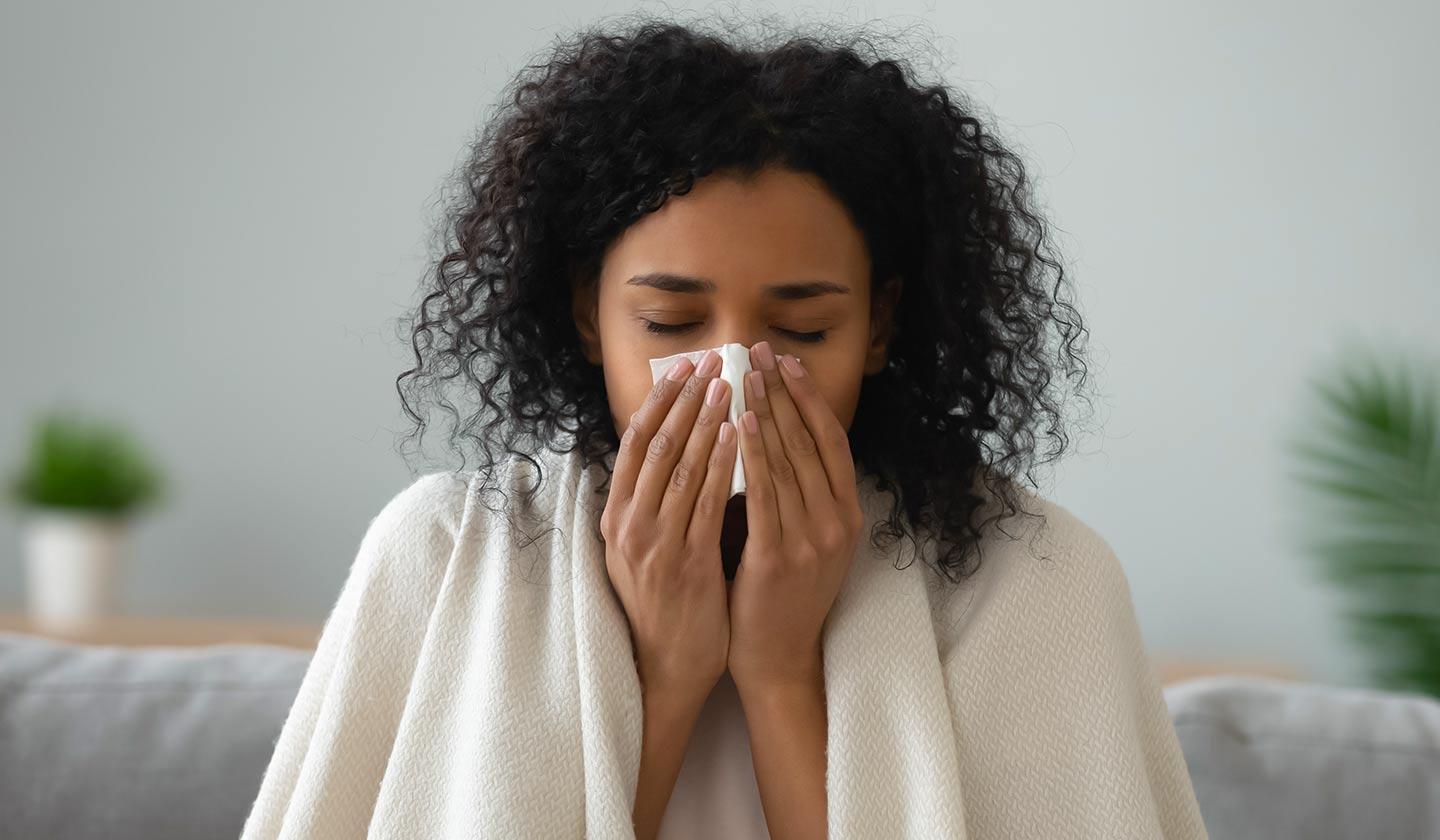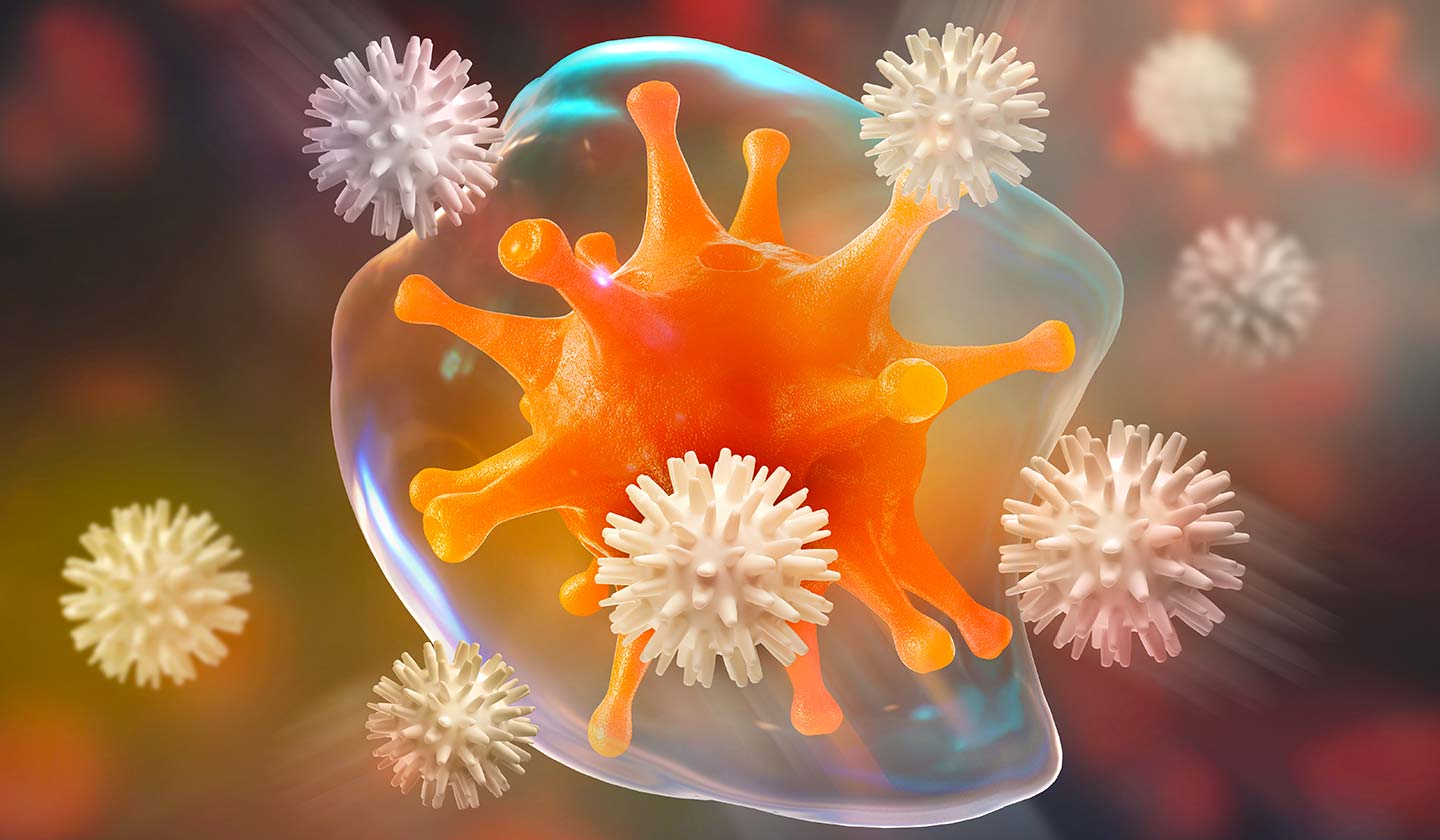Respiratory system
Flu and Colds - How to supplement?

Influenza and colds are very common upper respiratory tract infections caused by viruses that make up more than a third of all medical consultations. Although they have a similar symptomatology, they should not be confused.
On average, it is estimated that a normal adult suffers from 1 or 2 colds per year while a child suffers from 5 to 6 colds per year. The latter number depends very much on the stage of childhood and has a peak incidence in the first years of school or kindergarten.
Influenza Virus
Influenza is caused by a virus called influenza and can remain active for a month in the human body.
Among its most important characteristics is its high capacity for transmission between people. It usually presents itself as an epidemic during the winter, in the colder months. This infection causes symptoms that are more severe than the cold virus and that appear suddenly:
- dry or productive cough (with expectoration);
- headaches;
- muscle aches throughout the body, and fatigue;
- fever, chills, and shaking;
- nausea and vomiting may also occur.

Common cold
The commonest pathology in the human race is the common cold. It is an acute infection of the respiratory tract that can be caused by more than 200 different viruses, some of which are more prevalent, such as rhinovirus or coronavirus, among others.
Flu vs Colds
Coughing is more prevalent in the flu than in colds. Fever is stronger during the flu and can also last longer, up to a week, while in colds, it usually doesn't last more than a day or two.
Fever is one of the means our body has to eliminate the infection and is therefore part of the healing process. Unless the fever is very high or lasts a long time - eliminating it through medication is not a good idea.
Risk Groups
These are composed of people who have immature immune systems, such as children, which facilitates the contagion of infections such as the flu and the common cold.
Also the elderly, debilitated and immunosuppressed people are considered risk groups:
- Over 65 years old.
- Pregnant women.
- People with chronic lung diseases: asthma, emphysema, chronic bronchitis, bronchiectasis, tuberculosis or cystic fibrosis...
- People being treated with immunosuppressants (including HIV medication).
- People with kidney disease, heart disease, diabetes or metabolism disorders or anemia
- Adults and children older than 6 months hospitalized due to chronic metabolic diseases (including diabetes mellitus), kidney disorders, or hemoglobinopathies.
- People taking medication: it is advisable to check the interactions that the cold or flu medicine may cause with your usual medication.

Stop Propagation
Since the nose and eyes are the main sources of transmission of colds and flu, avoiding putting your finger in your nose or eyes (especially after being in contact with an infected person) helps prevent the spread of viruses.
If when you have a cold, you cough or sneeze into your hands, and then touch something - a doorknob, another person's hand - most likely the other person will also become infected if their immune system is not sufficiently strengthened. Therefore, one of the best ways to prevent the disease and/or spread the virus, is frequent hand washing and blowing yourself once with disposable tissues.

Natural fight against colds and flu
The following nutritional supplements help to strengthen and prepare our immune system to fight colds and flu:
1 - Vitamin C
One of the most important supplements to fight colds and flu. Strengthens the immune system through different modes of action. Take 2 to 5g a day, in doses divided throughout the day, depending on tolerance and habit - if you are a habitual user of vitamin C supplements, you should increase the dosage further. This vitamin, to be better absorbed and more effective, should be taken with bioflavonoids.
2 - Vitamin A/Beta-Carotene
This vitamin is particularly important in severe respiratory infections.
Beta-carotene, converted to vitamin A in the liver, is found in large amounts in dark green vegetables and carrots.
Take 100,000 to 200,000 I.U. of vitamin A or beta-carotene, for 4 to 5 days. If you are pregnant or breastfeeding do not take more than 10,000 I.U./day.
3 - Vitamin D
38 µg (1520 IU) of vitamin D3 contributes to the normal functioning of the immune system. Suitable for bones, teeth and muscles. Vitamin D plays an important role with regard to calcium absorption. Supports normal cell division.
4 - Equinacea (Echinacea purpurea)
This plant is well known scientifically and has been used popularly for hundreds of years for its anti-inflammatory properties and for its antibiotic and anti-viral action, and is therefore an excellent supplement to fight colds and flu.
500 mg,3 times a day is recommended at the first signs of a cold or flu; you can swallow or let the tablets come apart in your mouth. You can also take an extract in drops - 20 to 40 drops, 3 to 5 times a day, before meals.
5 - Zinc
Like vitamin C, this mineral has several anti-viral and immunostimulant properties, and is particularly effective in treating the symptoms of colds and flu.
Take 30 to 60 mg/day, in tablet or chewable form.
6 - Aged Garlic Extract
This is the most researched garlic supplement in the world. Its immunostimulant action is well documented. Kyolic E.A.E. stimulates various immune factors, such as T lymphocyte macrophage and NK cell activity.

Diet and Lifestyle
The following measures will help strengthen your immune system so that it can fight viruses more effectively. On the other hand, they may help to decrease the severity and duration of colds and flus.
1 - Drink several glasses of water a day (2.5 to 3 liters).
Viruses thrive well in dry environments, so water helps keep the mucous membranes of the throat and nose moist, creating an environment of resistance for viruses to multiply. Water also helps to eliminate toxins from the body, contributing to better white blood cell action. You can drink water, herbal teas, and natural fruit juices diluted in water.
2 - Reduce the consumption of sugars.
Cakes, cookies, soft drinks, concentrated juices, honey, chocolates, etc., since they weaken the immune system.
3 - Have light meals, based on soups, shakes, teas, water, in the most acute period of the infection.
4 - Getting plenty of rest and relaxation strengthens the immune system.
Stress and lack of sleep are common precursors to the development of colds and flu.
Taking food supplements can bring risks to your health, which may be related to the safety of the products, to the inappropriate use, including indiscriminate mixtures, without considering the advised doses of each substance, or possible interactions.
For your safety, talk to a health professional.
Sources
www.mdsaude.com






